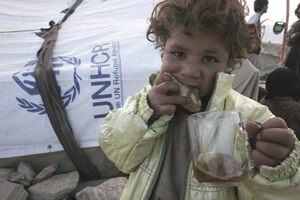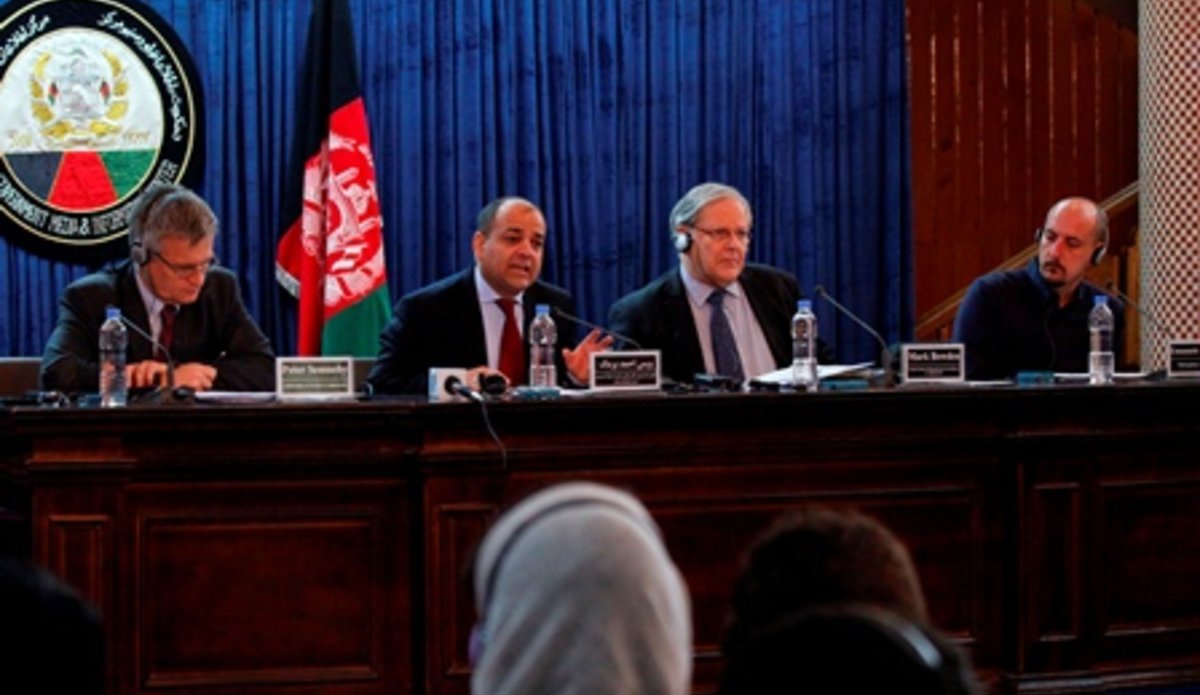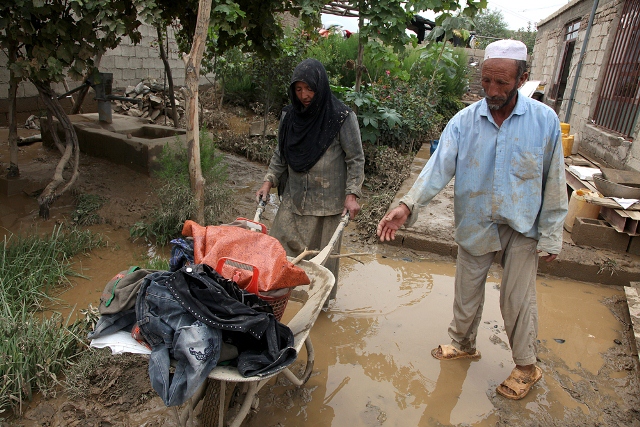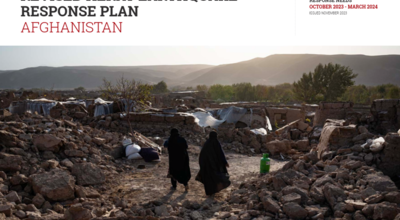UN launches $406 million appeal to meet Afghanistan’s ‘most acute’ humanitarian needs in 2014
KABUL - The humanitarian community in Afghanistan launched an appeal to donors today for $406 million required to meet “the most acute” humanitarian needs in 2014.
“In 2014, I appeal to donors to maintain a similar level of humanitarian funding as in 2013, when $384 million was received in support of the Common Humanitarian Action Plan,” said the United Nations Secretary-General’s Deputy Special Representative and the Humanitarian Coordinator for the country, Mark Bowden, at an event in the capital, Kabul.
Mr. Bowden was speaking on behalf of the UN and its humanitarian partners in the country, which still remains “a protracted complex emergency” with five million people in need of lifesaving assistance despite more than a decade of international and Government development efforts.
In 2013, the number of people in need of access to health increased from 3.3 to 5.4 million, said the UN official, adding that 2.2 million people were “very severely food insecure” while another eight million are “food insecure.” Similarly, more than half a million people needed shelter and non-food assistance, as most parts of the country were highly exposed to displacement caused by ongoing conflict and natural disaster, Mr. Bowden noted.
While giving a presentation on the humanitarian needs in Afghanistan, Mr. Bowden added, five out of the country’s 34 provinces were in the “most dire need”, which included Helmand in the south, Kunar and Nangarhar in the east, and Badghis and Ghor in the west.

“My main message today is that humanitarian funding and response must remain robust in light of the significant needs. Otherwise, Afghanistan could become a forgotten emergency, as international attention moves on to other pressing crises such as Syria, South Sudan and the Central African Republic, to name a few,” said Mr. Bowden.
Sadly, he continued, the conflict continues to be the predominant driver of humanitarian needs, causing disruption of services, displacement and injury to civilians across the country, which has left over 630,000 people internally displaced. Of them, 124,000 were displaced due to conflict in 2013 alone, which is a 25 per cent increase from the previous year.
On Tuesday, the Government of Afghanistan launched its UN-backed National Policy on Internally Displaced Persons with the aim to set out a “comprehensive, effective and realistic” framework to address the issue of displacement in Afghanistan.
Turning to last year’s achievements, Mr. Bowden said food security assistance was delivered to 2.2 million Afghans, shelter and non-food items were provided to more than 140,000 internally displaced, while 570,000 people received emergency water, sanitation and hygiene.
He also said that Afghanistan was one of the most dangerous countries in the world for aid workers, with some 6,200 security incidents involving humanitarian workers recorded last year.
The UN Humanitarian Coordinator noted that, in 2013, Afghanistan was at the top of the global funding response table having received over 80 per cent funding towards the appeal. The funding request for 2014 is 20 per cent lower than that of 2013, “which does not reflect a reduction in need, but a stricter prioritization of acute, as opposed to chronic needs.”
In his presentation, Mr. Bowden said that the global appeal for humanitarian funding this year is $13 billion to assist 81 million people in need. Against this background, he noted, the Afghanistan appeal is modest but no less important.
He also underpinned four priority areas during 2014, including a sustainable and effective health care system; durable solutions for internally displaced persons and refugee returnees; water management to reduce the negative impact of flooding and droughts on livelihoods; and an effective disaster management system.
In his comments, Afghanistan’s Minister for Rural Rehabilitation and Development (MRRD), Wais Ahmed Barmak, said that the Government of Afghanistan and its international partners are making “all possible preparations” to respond to the humanitarian needs in 2014.
 UN
UN









